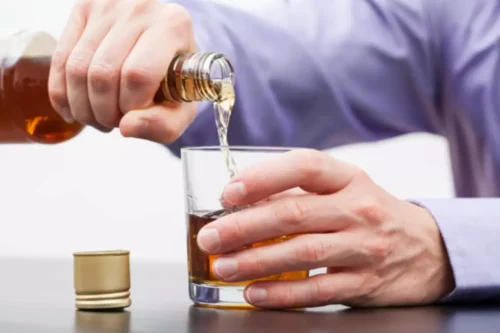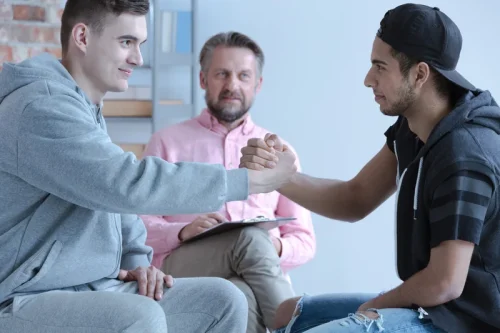
Cravings, or deep desire for a substance, arise from alterations in reactivity patterns of nerves in the brain’s reward center. Addiction can reveal itself in physical signs, as well as psychological and behavioral ones, although they are not diagnostically specific signs of drug use for the condition. Substance users may have dilated pupils or glazed eyes, slurred speech, and ramble when they talk. They can show changes in movement patterns—depending on the type of substance involved, psychomotor retardation (heroin) or jumpiness (cocaine).
- Many of the effects of drug addiction are similar, no matter what substance someone uses.
- Treatment for SUD often requires continuing care to be effective, as SUD is a chronic condition with the potential for both recovery and relapse.
- Neurons use chemicals called neurotransmitters to communicate.
- Thankfully, you can discover when a friend or family member has become addicted to drugs by observing the following signs of substance use disorder in adults.
Where can I learn more about substance use and co-occurring disorders?
- Substituted cathinones can be eaten, snorted, inhaled or injected and are highly addictive.
- Any cue with emotional significance registers on the brain’s amygdala, which then activates the nucleus accumbens and its dopamine neurons.
- For a teenager, moving, family divorce or changing schools can increase their risk.
- This impairment in self-control is the hallmark of addiction.
- When use of that substance stops abruptly, cessation disrupts all the adaptations to that substance the brain has made; over time, it will adapt to absence of the drug—but that process takes time.
- Substances users often become so preoccupied with getting and using that they forego eating and suddenly lose weight.
To get started with comprehensive substance use disorder treatment, contact The Recovery Village today. People who become addicted to opioids are often prescribed prescription drugs, such as painkillers, often following something like an accident or surgery. They can then start taking higher doses of those prescription drugs, which can lead to abuse. They may also seek cheaper forms of opioids, such as heroin.
How can I help a loved one with substance use disorder?
The areas of the brain affected and changed by drug abuse are the same areas of the brain that control cognition and include learning, memory, and higher reasoning. When drugs are abused, those areas in the brain are altered. This disrupts normal functions and may cause a deficit in memory. Knowing the signs that someone is on drugs may help you identify when there is a problem. Taking steps to address this problem may save your loved one’s life.
- Your donation can make a difference in the future of healthcare.
- By Michelle PugleMichelle Pugle, MA is a freelance writer and reporter focusing on mental health and chronic conditions.
- Fears about addiction should not prevent you from using narcotics to relieve your pain, but it’s smart to use caution.
How are substance use disorder and co-occurring mental disorders diagnosed and treated?
- Taking some drugs can be particularly risky, especially if you take high doses or combine them with other drugs or alcohol.
- As a result, those who are addicted to alcohol should never attempt to stop drinking on their own; medical detox is required.
- If a person has used PCP, they may be unable to feel pain and seem intolerant to loud noise.
- Genetics also increase the likelihood of an addiction by about 50 percent, according to the American Society of Addiction Medicine.
- Early identification of prescription drug abuse and early intervention may prevent the problem from turning into an addiction.
Over time, drug use alters the chemical and functional structures of the brain. Addiction and the intense need for a drug may cause someone who is normally very docile to become agitated and aggressive. Also, stimulant drugs may cause a normally depressed person to appear very energetic or even manic. Some of the most abused drugs are stimulants or depressants. Excessive use and abuse of these drugs can cause intense highs characterized by hyperactivity and periods of insomnia or intense lows that cause long periods of sleeping or drowsiness.
How do you treat addiction?
They may also think and feel differently than they normally do. Psychological signs of drug abuse can include changes in a person’s thought patterns, attitudes, beliefs and priorities. There are effective medications that treat opioid , alcohol , and nicotine https://ecosoberhouse.com/ addiction and lessen the symptoms of many other mental disorders. Some medications may be useful in treating multiple disorders. For more information on behavioral treatments and medications for SUDs, visit NIDA’s Drug Facts and Treatment webpages.

Common Signs and Symptoms of Substance Abuse
Treatments will focus on helping you or the person you know stop seeking and engaging in their addiction. Charity Action on Addiction, 1 in 3 people in the world have an addiction of some kind. Addiction can come in the form of any substance or behavior. Young children may swallow drugs by accident because of their curiosity about medications they may find. Children younger than age 5 (especially age 6 months to 3 years) tend to place everything they find into their mouth.
Signs of Drug Abuse/Addiction by Drug

Risk and protective factors may be either environmental or biological. It is possible to be dependent on a substance without being addicted. Physiological dependence can occur with many different kinds of substances, including common medications.

